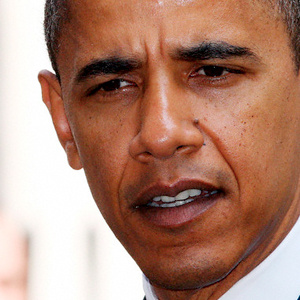Objectivity Replaces Ideology: Iran’s Response to Obama’s Message

We are not comparing the sphere of influence of American and Iranian presidents however. That would be a fallacy. We are talking of the extent of changes that depending on their accordance with the global order, become positive or negative and lead to loss or benefit.
Obama addressed Iran by its official title
Obama’s message was eloquent and apropos as usual. Although he put forth United States’ political demands as a superpower and spoiled its poetic essence, he embellished the message with verses that led the Iranian leader to make a response the next day, and signal a possibility for real changes in bilateral ties.
Since the establishment of the Islamic regime in Iran, this was the first time an American president addressed Iran by its official title, i.e. the Islamic Republic of Iran. Most importantly, Obama addressed the Iranian people and their leaders together ("In particular, I would like to speak directly to the people and leaders of the Islamic Republic of Iran").
While Western culture is highly popular in Iran and lovers of Western music, Western movies, and Hollywood celebrities are a myriad, Obama praised Iranian culture and art, pointed to historical civilization and the contribution it has made to United States and the world.
After this prelude, Obama turned towards Iranian leaders. He pointed to the existing differences, his administration’s commitment to diplomacy, pursuit of constructive ties between United States, Iran and the international community and honest engagement.
How the Iranian Leader views democracy
With Obama directly addressing the Iranian people and leaders together for the first time since Islamic Republic’s establishment, Ayatollah Khamenei decided to focus his speech in the holy city of Mashhad on Iran-U.S. relation, Iran’s theocratic democracy, and the forthcoming presidential elections.
While after Khatami’s withdrawal from running for office, the presidential campaigns have entered a new phase and advance of democratic changes have become subject to doubt, the Iranian leader spoke about Iran’s theocratic democracy, and clarified that all people have an equal vote in the elections and his support for the present administration has no electoral intentions. Ayatollah Khamenei also addressed the executive and legislative forces to govern the country in the New Year by reforming the ’consumption pattern’ and saving the society from drowning in economic and social crises.
With the economic crisis approaching oil-exporting countries and Iran still facing sanctions, the new Iranian year has become a critical one for the Islamic Republic. However, there may be a happy ending. It is expected that the senior statesmen decide to stop the current policy trend in domestic and foreign affairs, remove the fetters against country’s progress, and embrace change.
Moving towards privatization and free market, offering banks and state-run factories’ stock, cooperation with the international community to counter threats and lift sanctions, and supporting a new presidential candidate may be some of the solutions adopted to weather the crisis and rescue the political system.
Iran’s right to be assertive
Supreme Leader’s remarks on Iran-U.S. relations started with recalling the history of America’s hostility towards Iran. With this introduction, Ayatollah Khamenei asserted Iran’s right to expect changes to start at first from the American side. He also pointed to billions of dollars of Iran’s assets blocked by United States, Americans’ green light and support for Saddam Hussein to attack Iran, and knocking down the Iran Air Flight 655 by USS Vincennes. He said that the Iranian nation couldn’t forget these events. Ayatollah Khamenei also bashed that part of Obama’s message which accused Iran of supporting terrorism and pursuing nuclear arms and called it an indictment.
Objectivity replaces ideology
Another part of Supreme Leader’s statements referred to United States’ dual standards and how they want to impose their will on other countries. This is the root of all mistrust according to Ayatollah Khamenei. He advised the American officials to avoid such behaviors to gain public opinion’s trust. In fact, he indirectly demanded the United States to change its policy towards Iran if it wanted Iran to revise its attitude and go for change.
The Iranian leader didn’t further elaborate on mutual changes. However, he didn’t tie Iran-U.S. relations to ideology. Nonetheless, he pictured a background of U.S. hostile acts towards Iran to show that it is time to become objective and move through clear points, same as Obama who had talked of his administration’s commitment to diplomacy that "addressed the full range of issues".
Ayatollah Khamenei gave a shrewd response to Obama’s reference to Iran’s ’choice’, i.e. to decide for a better future or to continue the existing situation. By stressing the democratic aspect of Islamic Republic, the Leader implied that the regime voices its people and United States’ hostile acts have in fact afflicted the Iranian people.
Obama’s message conveyed more signals of a change compared with Ayatollah Khamenei’s response. However, both clarified what the points of difference are and which officials utter the final word for resolving these differences. Meanwhile, it became clear that Iran can put aside its ideological views when it comes to bilateral ties. Evidently, moving from the ideological level to a political level –with all the differences and expectations- is a leap. The political level gives more chances for dialogue and flexibility.

